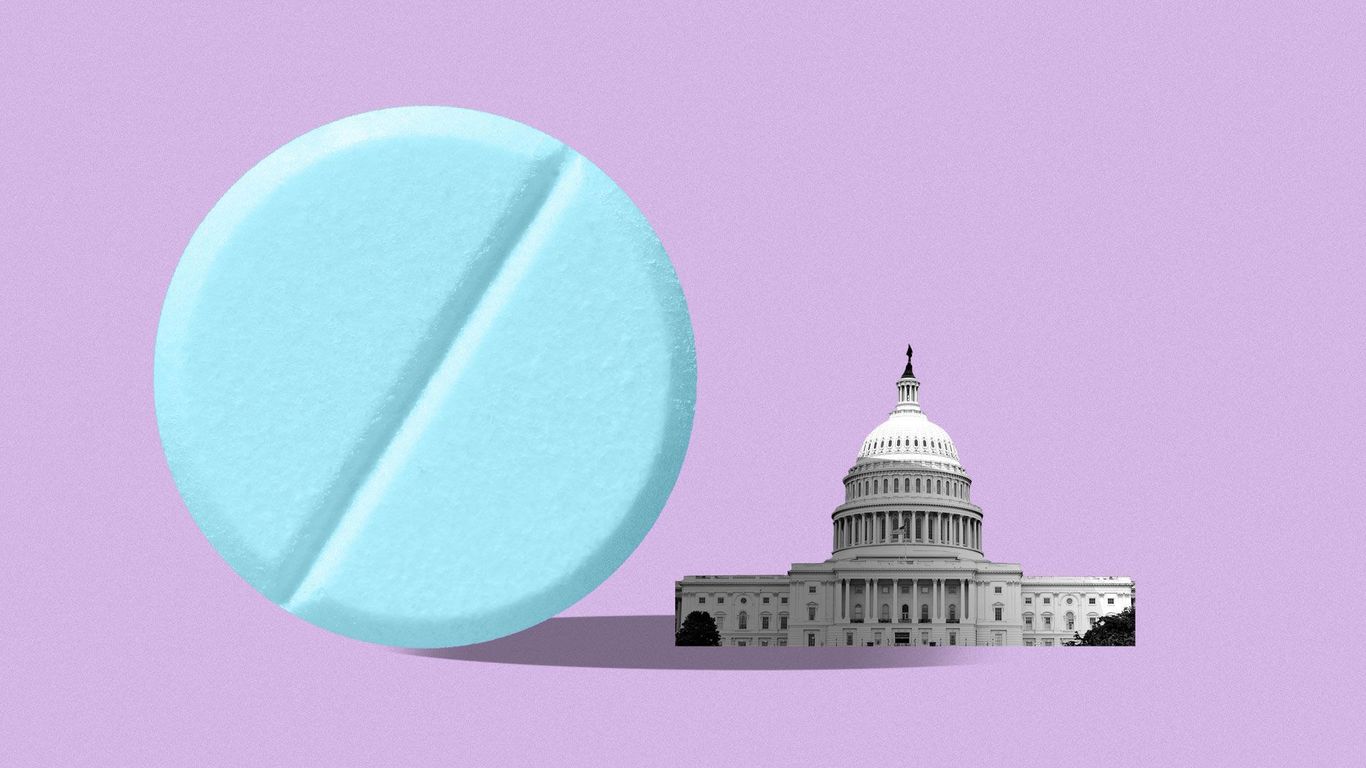
Democrats are trying again to enact government price negotiations for prescription drugs, with a revised plan that would be wrapped into a broader reconciliation bill.
State of play: Senate Majority Leader Chuck Schumer on Wednesday released updated drug pricing language for review by the chamber’s rules referee, with a goal of passing it through the partisan reconciliation process, which wouldn't need any Republican votes.
- Schumer has been engaged in talks with Sen. Joe Manchin (D-W.Va.) on a package that would let Medicare negotiate directly with drugmakers over the price of prescription drugs
- While there's no agreement on other components in the package, Schumer has told Senate Democrats that if a deal can be reached, a bill could reach the Senate floor before August recess, per a source familiar.
The big picture: The specifics of the new plan "appear ever so slightly more favorable to industry," said Raymond James analyst Chris Meekins.
Details: According to a summary of drug pricing provisions obtained by Axios, negotiations would begin next year. The new negotiated prices would take effect in 2026.
- The deal would overhaul Medicare's Part D drug benefit starting in 2025 and cap annual premium growth at 6% through 2029.
- Drug companies would have to rebate back the difference if they raise Medicare Part D prices higher than inflation, starting in October.
The revised draft would require Medicare to use its new negotiating power for as many drugs as possible — a change from earlier drafts, which gave the department some flexibility to back off.
- Price negotiations for biological drugs, however, could be delayed up to two years if a functionally equivalent biosimilar is likely to hit the market before the negotiated price takes effect.
- The latest language doesn't specifically address price negotiations for insulin.
What they're saying: "This reform would help make sure when companies profit they do it because they are innovating and serving their customers, not hiring the best lawyers and lobbyists," said Frederick Isasi, executive director of Families USA.
The other side: Drugmakers decried the plan as misguided.
- "The prescription drug bill released today went from bad to worse for patients," said Debra DeShong of PhRMA, the big Washington drug lobby. "Democrats weakened protections for patient costs included in previous versions, while doubling down on sweeping government price-setting policies that will threaten patient access and future innovations."
- "As we've previously warned, 'negotiation' is simply a euphemism for a government takeover of a sector that, on its own, has been historically successful in saving millions of lives," said Michelle McMurry-Heath, CEO of the Biotechnology Innovation Organization.
The intrigue: Democrats are eager to show voters they've acted to lower drug prices before the November midterms, and progressive groups are prodding them to use all the legislative and administrative tools they can to do so.
- But taking on pharma could exhaust a lot of political capital, and opponents say the substance of the proposal could have a chilling effect on innovation.
What we're watching: Manchin's involvement doesn't ensure a smooth ride for the rest of the reconciliation package, and the parliamentarian could still decide some of the drug pricing provisions don't comply with Senate rules.
from "price" - Google News https://ift.tt/ESk7rMI
via IFTTT
No comments:
Post a Comment